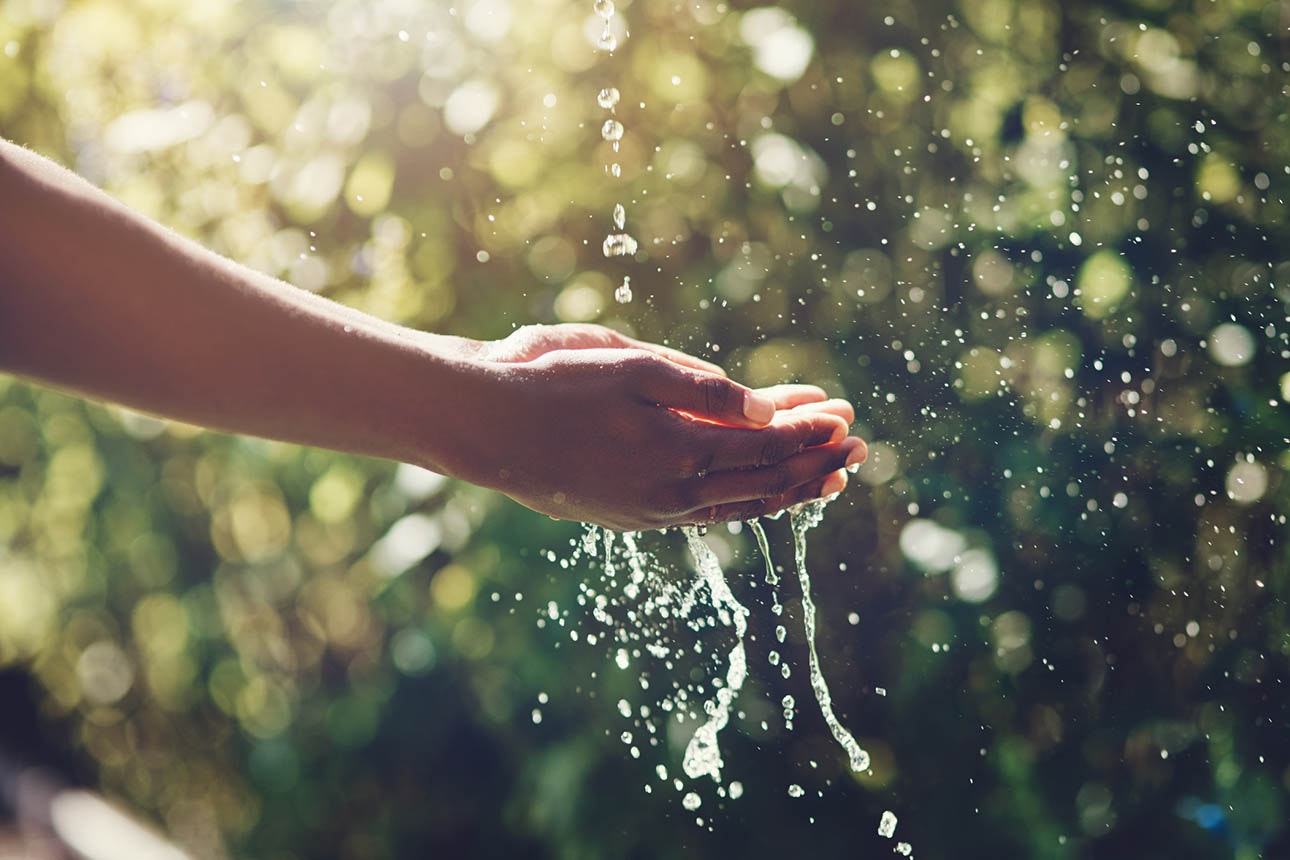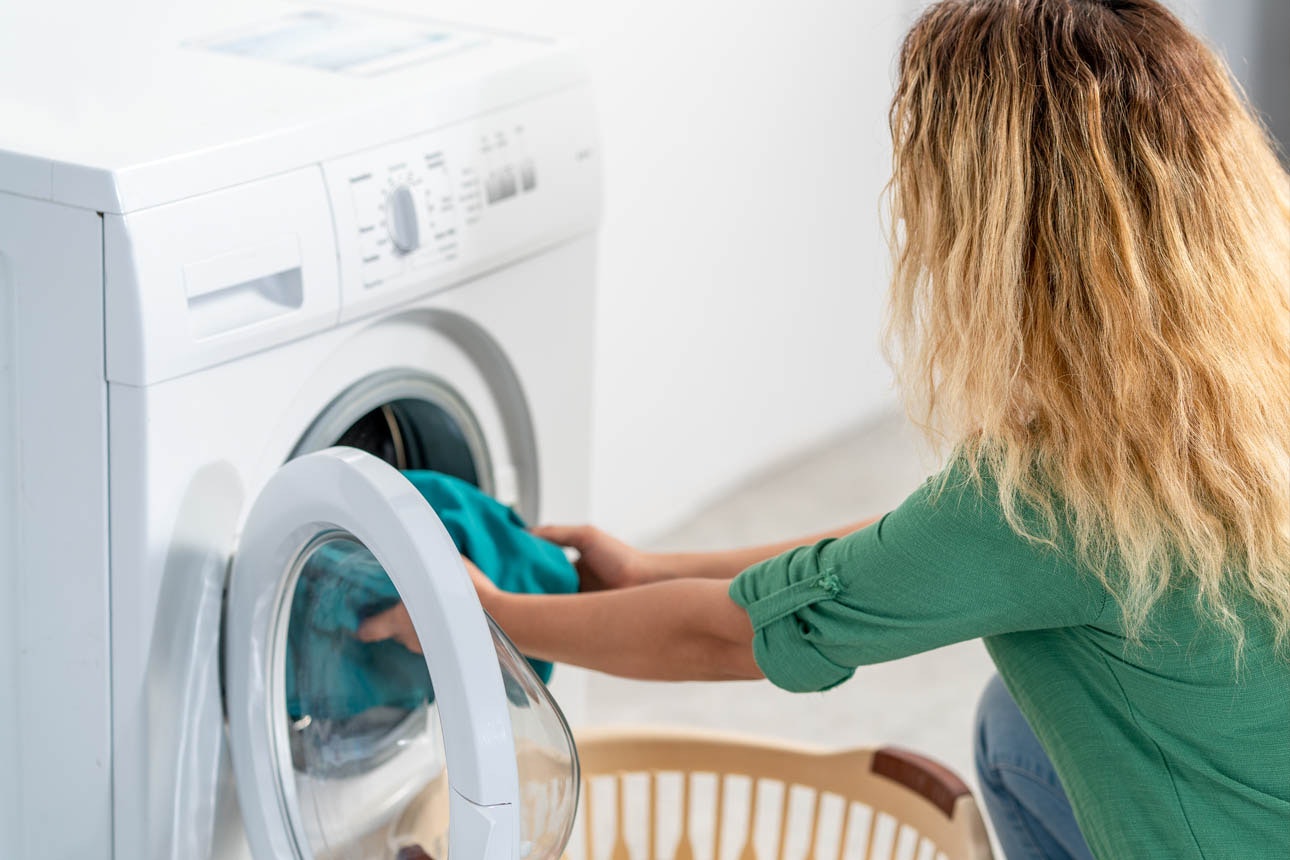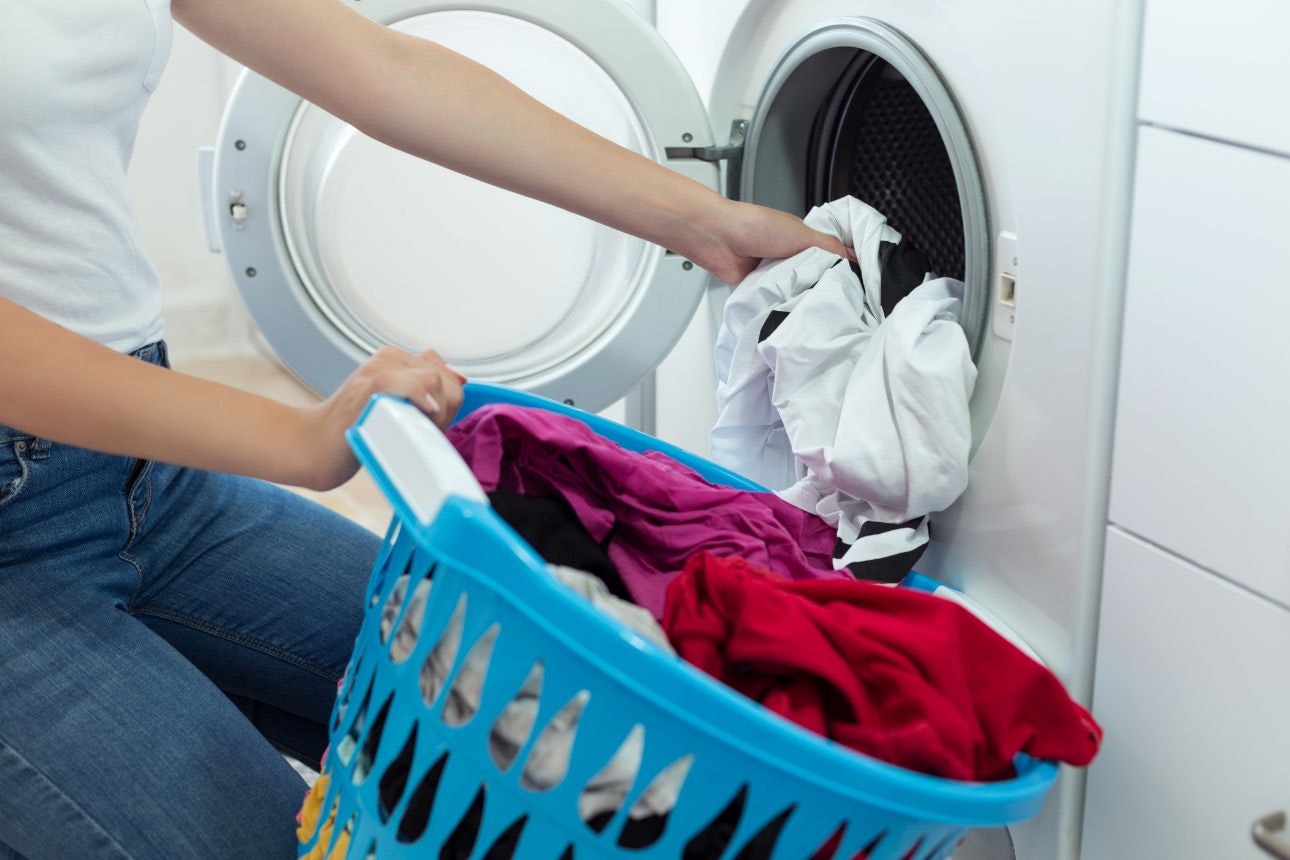We put laundry powders and liquids to work on 10 common stains including grass, blood, baby food and chocolate ice cream.
The stains need to be particularly tough to show up differences in detergent performance, so the scores shown are an indication of each detergent’s relative wash performance, not a measure of the amount of soil removed from the fabric. At home, you can expect detergents to remove more of each stain, especially if you get to them quickly.
Which detergents are environmentally friendly?
Unfortunately, there’s no environmentally friendly detergent. All place a burden on the environment, in the materials they release into our wastewater and in their manufacture and packaging.
Some have less impact than others because they recommend lower doses and leave out ingredients that don’t contribute to washing performance or may harm the environment. Ingredients commonly targeted are phosphates, enzymes, and optical brighteners.
Some laundry detergents claim to be more environmentally friendly than others. Manufacturers can back their claims by applying for accreditation to an environmental labelling scheme.
How can you reduce the impact of washing on the environment?
Follow the dosage instructions.
Use the lowest acceptable wash temperature to save energy.
Do full wash loads. Some washing machines use the same amount of electricity and water, whether they’re full or half empty.
Recycle containers.
Sustainability accreditation schemes
Eco Choice Aotearoa

Eco Choice Aotearoa (formerly Environmental Choice) is endorsed by the government and run by the independent New Zealand Ecolabelling Trust. It’s a member of an international eco-labelling network.
To meet the standards for a laundry detergent, a manufacturer must provide test reports and evidence that its product doesn’t contain ingredients that are harmful to the environment or unnecessary for removing dirt. As well, the test evidence must show that ingredients are readily biodegradable. Eco Choice Aotearoa allows phosphates but limits the amount that can be used; and it places a limit on the pH of the detergent.
Products approved by Eco Choice Aotearoa must also meet criteria for consumer information, packaging and cleaning performance.
The Green Tick
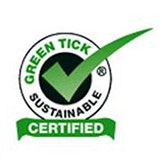
Green Tick is a New Zealand company that audits manufacturers’ processes against independent standards for sustainability and quality management.
To achieve accreditation, the manufacturer is assessed by an independent auditor who reviews documentation, inspects the factory, and checks with government agencies that there are no health and safety or environmental issues. Some products in the manufacturer’s range are also randomly selected for assessment.
Is waste wash water safe for the garden?
If your garden is suffering during a dry spell you might be tempted to use water from your washing machine.
But there are health issues in collecting and recycling grey water (that’s the wastewater from the sink, bath, shower and washing machine but not from the toilet or bidet). If you’re diverting the grey water to a tank you should ask your local council whether you need a consent. You won’t need one if you’re simply collecting the water in containers to water the garden straightaway.
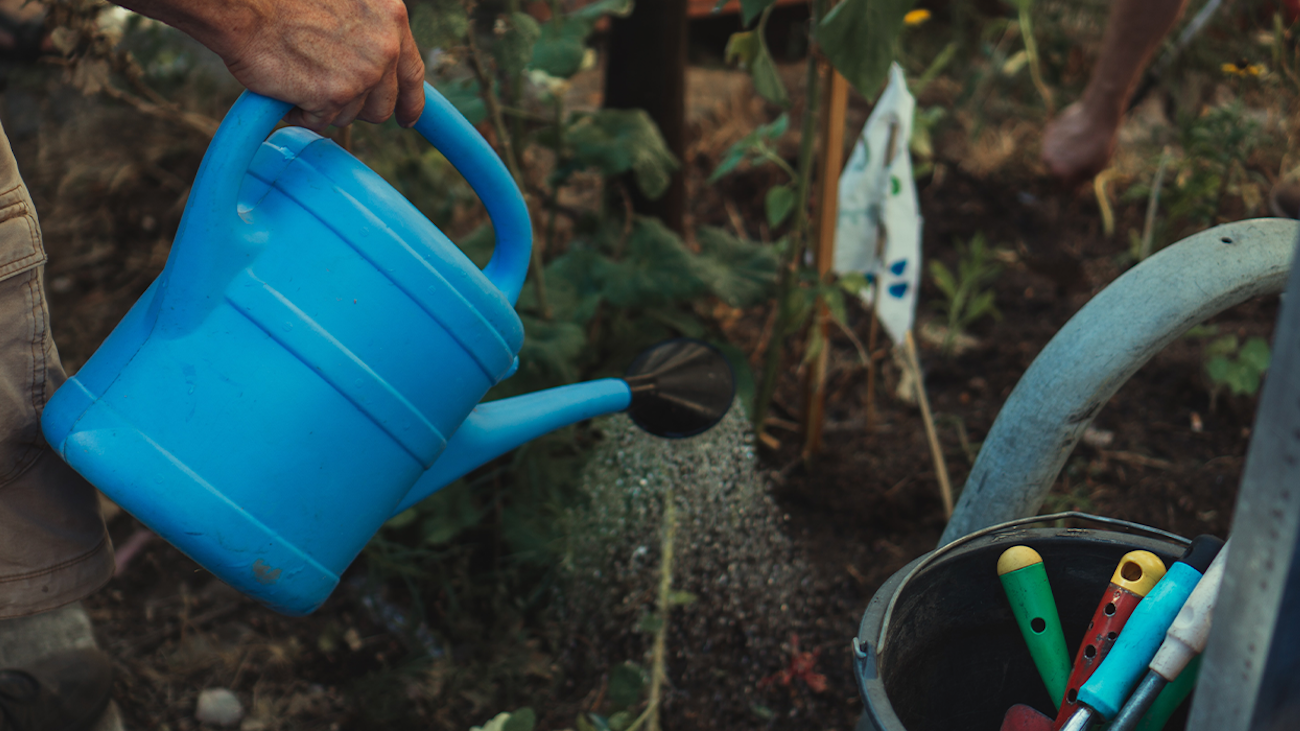
Chemicals are also an issue. The components of wash water most likely to cause problems are:
Salinity/sodium (the sodium in salts harms plants and affects soil structure).
Phosphorus (when this gets into waterways it can cause excessive algal growth).
High pH (laundry detergents that have a high pH can harm plants). Almost all the detergents in our test claim be phosphate free or contain only low levels of phosphates.
You can reduce the impact of chemicals by using only rinse water.
Don’t use any type of recycled grey water – wash or rinse – on acid-loving plants such as azaleas, rhododendrons, daphnes or camellias. And don’t use grey water on anything you may eat raw.
Laundry sheets
There’s a new kid on the block: laundry sheets. First hitting shelves in Aotearoa in 2021, they are dissolvable sheets that you tear off and just throw in the wash. Pre-dosed like capsules, but with more ability to alter the dosage (by cutting a sheet), these are touted as low waste and kinder on the environment.
Ingredients explainer
If you have sensitive skin or want to minimise your environmental impact, you’ll need to know what’s in your detergent.
Surfactants lower the surface tension of water. This lets the water penetrate cloth more easily and so it helps remove oil and grease. Specialist front-loader detergents sometimes contain silicon compounds or special surfactants to reduce the amount of foam.
Enzymes target stains such as milk, grass and blood. Enzymes can cause irritation – so avoid them if you have sensitive skin.
Optical brighteners are supposed to make clothes look whiter and brighter. They help minimise greying of white fabrics but they don’t actually remove dirt. People with sensitive skin should avoid detergents with brighteners.
Builders help surfactants work better by softening hard water and raising alkalinity. They hold dirt in suspension so that it’s flushed away with the water and not re-deposited on your clothes.
Fillers stop washing powders clumping in the pack (so it makes them easy to pour).
Fragrance is for cosmetic reasons and to mask the smell of the ingredients. We don’t comment on fragrance as smell is subjective: what one person finds offensive may well be perfume to another.
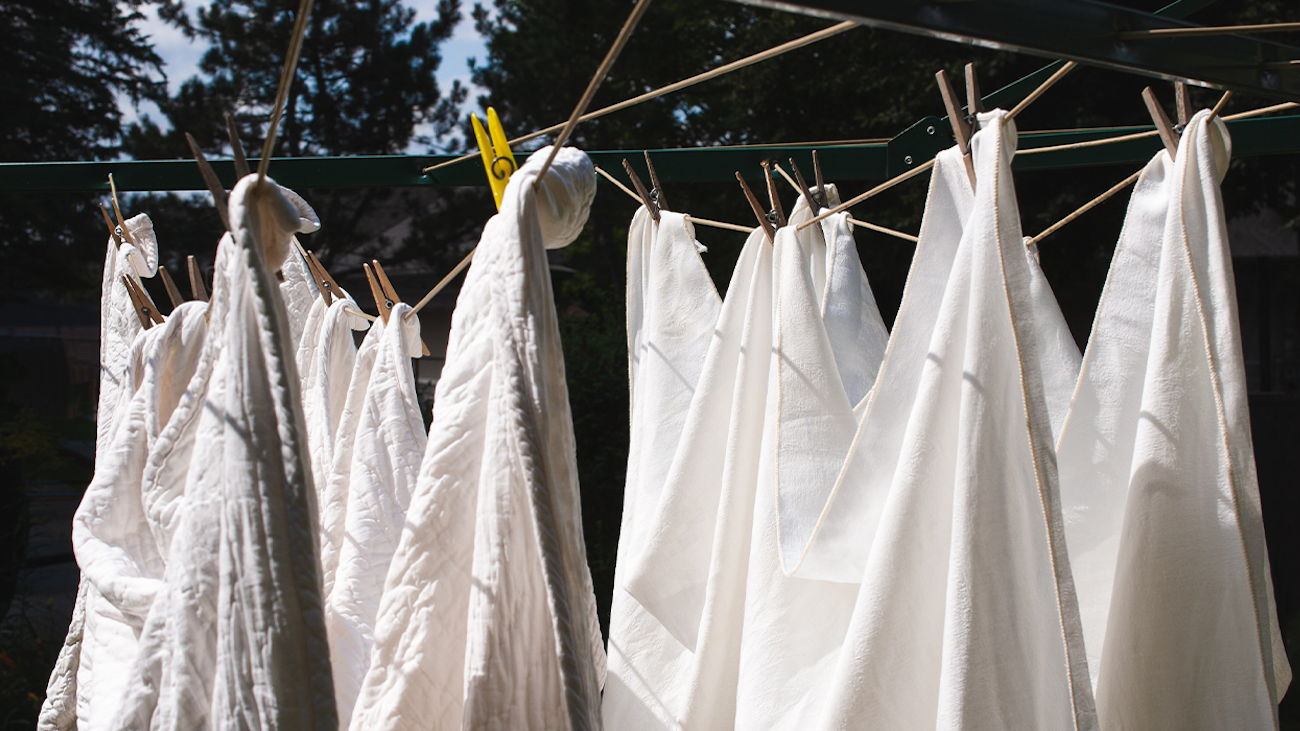
Safety first
If someone ingests a cleaning product:
immediately wipe out their mouth
retrieve the bottle for identification purposes
phone your doctor or the National Poisons Centre (0800 POISON).
Always keep laundry detergents, fabric softeners and stain removers out of reach of children and pets — ideally in a high or locked cupboard.
Tough stains tips
If you’re faced with a challenging wash, try these tips.
Increasing the dose above the recommended level will get really dirty clothes cleaner but it won’t make much difference in a normal load. There’s a point at which adding more detergent produces no improvement: you’re simply discharging more chemicals into the environment and wasting your money.
A warmer wash could help when something’s really grubby … but check the garment’s care label first. Higher temperatures soften dirt and oily stains, making it easier for the mechanical action of the washing machine to remove them. But cold washes are just fine for regular washing and they save on power bills.
Pre-soaking clothes can improve the results of a normal wash. This helps loosen dirt so it can be removed more easily. Rubbing a little detergent into especially soiled spots will also help. Again, check the care label first.
To keep your whites really white look for a detergent which contains optical brighteners. They give fabrics a cleaner brighter appearance by coating them in a reflective solution. Wash your whites separately, because dye can transfer between clothes during the wash.
